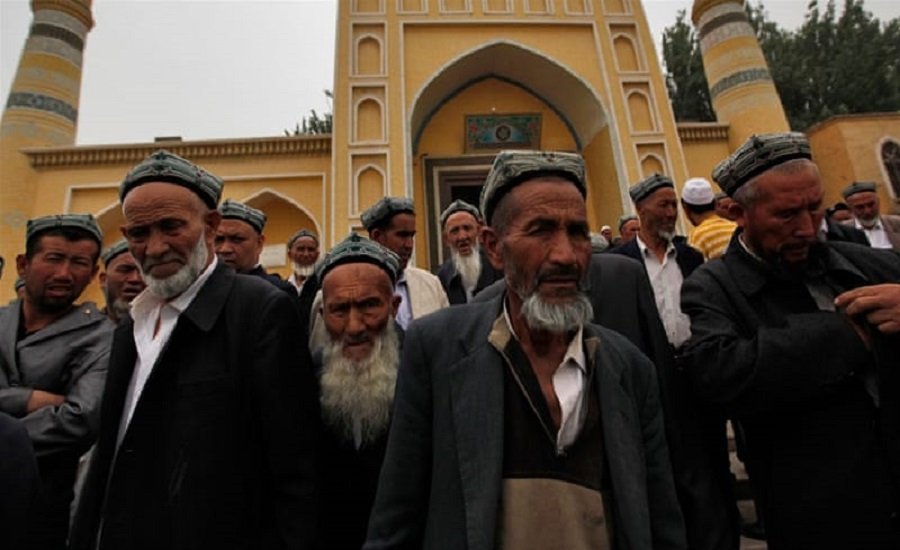
BEIJING — China has demanded that the country’s Muslim Uighur minority turn its back on the Quran and eat pork.
As part of its war on terror, the Communist Party has begun an anti-halal movement to stamp out what it believes are radical religious thoughts shared among the country’s 11 million Uighurs.
Beijing is suspicious of all religions, perceiving them as a threat to party rule, but it is particularly anxious about Islam, which it blames for fuelling militant violence. The authorities in Xinjiang, in the far west of the country, are holding hundreds of thousands of Uighurs in detention camps and forcing them to undergo “deradicalisation” programmes. Prisoners are made to eat pork, recant their Islamic beliefs and sing songs that praise the Chinese regime.
A UN human rights panel estimates that about one million of China’s Uighurs and other Muslim minorities are in prison and that many have not been charged with a crime. The mass detention programme has drawn criticism from the international community, with Washington demanding that the jails be closed immediately.
The authorities in Xinjiang said this week that they were changing local laws on what used to be known as vocational skills education and training centres. The new law effectively legalises the prison camps, stating that such centres will “organise deradicalisation thought education, psychology counselling and behavioural corrections to achieve thought conversion among the trainees so they can return to the society and their families”.
It is the first time that the Chinese authorities have acknowledged the use of prison camps to incarcerate people for harbouring radical thoughts.
Maya Wang, senior researcher at the charity Human Rights Watch, said: “Without due process, Xinjiang’s political education centres remain arbitrary and abusive, and no tweaks in national or regional rules can change that.”
The Xinjiang authorities are seeking to curb the influence of Islam among the wider public by demanding that local Uighurs “liberate” their thoughts by breaking away from the religion. An official article written under the pen name Yimu states: “With unprecedented and unstoppable paces, the masses are breaking free from the iron cage of religious extremism and antiquated rules.”
The article criticises the Islamic ban on eating pork. “It’s understandable why pork was not consumed when the economy was backward and the pigs would have been prone to diseases. Now, with our lives improving and the swine-farming technology modernised, pork has become a major meat across the world.”
In another official article Yusuf Raxit, a government worker, says that he has become a pork eater. “The halal dietary restrictions brought me many inconveniences and even resulted in social difficulties for me,” he wrote. He adds that there is no scientific evidence that pork cannot be consumed and credits his non-halal habits to marrying a woman from the Han majority.
c.thetimes.co.uk

